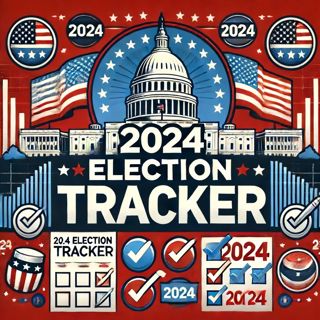
Navigating the Unpredictable Landscape of the 2024 U.S. Presidential Race
Jaksokuvaus
The dynamics of the 2024 U.S. presidential election are illustrating the fluidity and unpredictability often characteristic of modern American politics. Key developments have shifted the narrative and impacted the strategies of the potential candidates involved.Firstly, former President Donald Trump's recent legal troubles have paradoxically aided his campaign fundraising efforts. Typically, one might expect a candidate's conviction on multiple felony charges to hamper their public image and political viability. However, Trump's conviction on 34 felonies has seemingly galvanized his base, leading to a surge in campaign contributions. This surge is significant enough that it has begun to erode the financial lead previously held by incumbent President Joe Biden. This phenomenon underscores the deep political divisions in the U.S. and suggests that, for many voters, loyalty to Trump transcends traditional political considerations and legal judgments.Meanwhile, security and integrity in U.S. elections continue to be a focal point, as indicated by the upcoming 2024 Multi-State (MS) and Elections Infrastructure (EI) ISAC Annual Meeting hosted by the Cybersecurity and Infrastructure Security Agency (CISA). The meeting will address key issues facing the security of election infrastructure. Participants, including speakers from state, local, tribal, and territorial election organizations and the cybersecurity industry, will discuss strategies to mitigate threats and ensure that the election process is both secure and trustworthy. This initiative highlights the ongoing efforts to protect elections from interference and improve confidence in the electoral process, which is crucial in a democracy, especially following the contentious 2016 and 2020 elections.In addition to Trump and Biden, other potential candidates like Robert F. Kennedy Jr. have been attempting to carve out their niches within the national debate. However, RFK Jr. faced a setback as he failed to qualify for the first presidential debate hosted by CNN. This exclusion sets the stage for a more direct confrontation between Biden and Trump, potentially simplifying the race into a binary choice for many voters. Kennedy's failure to qualify illustrates the challenges faced by third-party and independent candidates in gaining visibility and traction in a political landscape dominated by two major parties.These pivotal developments reflect the complex interplay of legal, financial, and electoral strategies at play as the United States moves closer to the 2024 presidential election. Each candidate's ability to navigate these challenges will be crucial in shaping the electoral outcomes. Additionally, the focus on election security is a reminder of the broader context in which these elections occur, emphasizing the importance of integrity and fairness in the process.
